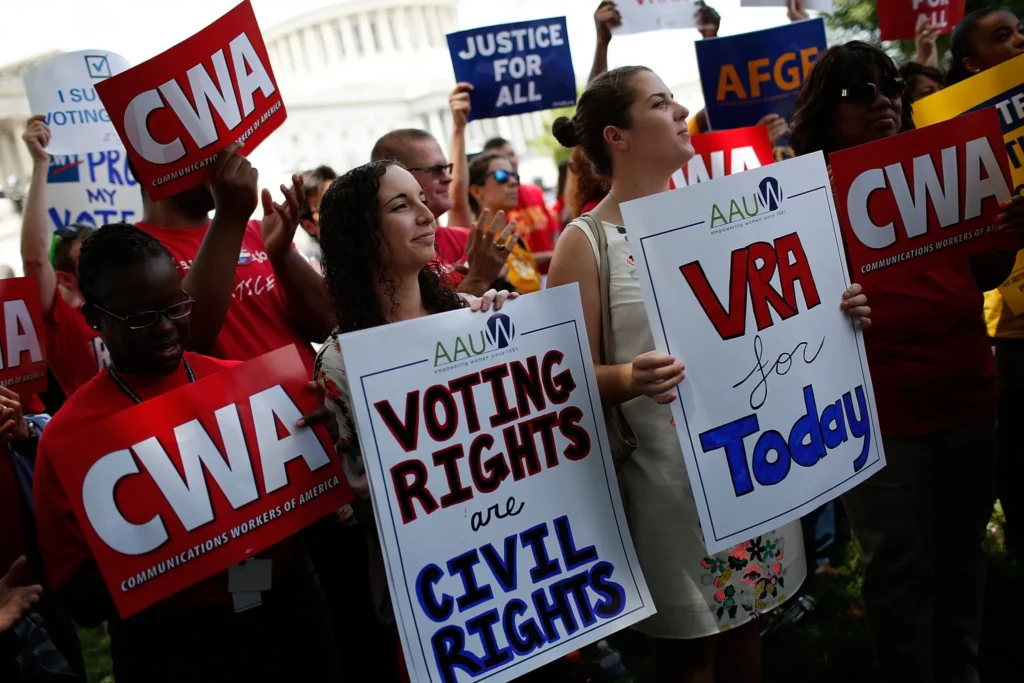In a significant legal decision with potential nationwide implications, a U.S. federal appeals court has upheld a Texas law requiring voters to include identification numbers when casting their ballots by mail. The ruling affirms the state’s authority to implement voter ID requirements as part of broader election security efforts and sets a precedent for similar laws across the country.
Background on the Texas Voter ID Law
In 2021, Texas passed Senate Bill 1 (SB 1), the law at the heart of the case. Among its many provisions, tightening voting procedures, SB 1 requires that voters who wish to cast a mail-in ballot must provide either a driver’s license number or the last four digits of their Social Security number on both the application for a mail-in ballot and the envelope used to return it. These numbers must match the voter’s existing voter registration file for the ballot to be counted.
Proponents of the law argue that the requirement is a common-sense measure designed to enhance election security and reduce the risk of fraud, especially in a mail-in voting system. Critics, however, view the law as part of a broader strategy to suppress voter turnout—particularly among older, disabled, and minority voters—who are more likely to vote by mail.
The Legal Challenge
Shortly after SB 1 was enacted, civil rights groups, voting advocacy organizations, and individual voters filed lawsuits challenging various provisions of the law. They argued that the ID number requirement placed an undue burden on voters and violated federal voting rights protections, including the Civil Rights Act and the Voting Rights Act.
The legal battle focused heavily on the issue of “ballot rejections.” In the initial elections following the law’s implementation, thousands of mail-in ballots were reportedly rejected due to ID mismatches or omissions. Many of these rejections occurred even when the voter was otherwise clearly eligible and registered. Plaintiffs argued that the law disproportionately affected elderly and disabled voters, who may not recall which ID they used to register, especially if it happened decades ago.
The U.S. District Court initially allowed portions of the lawsuit to proceed, but the state appealed. The Fifth Circuit Court of Appeals, known for its conservative leanings, ultimately sided with the state of Texas, ruling that the ID requirement does not impose an unconstitutional or illegal burden on voters.
The Court’s Reasoning
In its ruling, the appeals court stated that requiring voters to provide matching identification numbers is a reasonable measure to ensure election integrity. The court acknowledged that while the law may create an administrative hurdle, it does not rise to the level of disenfranchisement or violate federal voting rights protections.
The court further noted that Texas allows multiple forms of ID, and voters who are unable to meet the standard ID requirements have alternatives, including the opportunity to cure their ballots if initially rejected. In the court’s view, these safeguards help to mitigate any potential for disenfranchisement.

Political Reactions
The ruling has sparked strong reactions from both sides of the political spectrum.
The ruling was hailed as a triumph for election integrity by Texas Republicans, including Attorney General Ken Paxton and Governor Greg Abbott. In a statement, Governor Abbott declared, “Texans deserve safe and transparent elections. “This ruling ensures our laws protect both access and accountability.”
Democrats and voting rights advocates were quick to express concern. Organizations such as the ACLU, League of Women Voters, and Texas Civil Rights Project criticized the decision as a setback for voter accessibility and an invitation for further restrictive voting laws across the nation.
“This ruling ignores the real harm done to thousands of voters whose ballots were rejected for minor clerical errors,” said one advocacy group spokesperson. “It sends a dangerous message that making voting harder is acceptable.”
Voter Impact: What Texas Voters Need to Know
For Texas voters, this ruling means that the ID number requirement remains in effect and will likely be enforced in all upcoming elections, including the 2026 gubernatorial race and national elections in 2028.
Voters should ensure that their voter registration information is up to date and that they know which form of ID—driver’s license or Social Security number—they originally used when registering. If voters are unsure, they can contact their county elections office or check online through the Texas Secretary of State’s website.
It’s also important to understand the ballot curing process. If a mail-in ballot is rejected due to an ID mismatch or other issues, voters may be notified and given a chance to fix the problem within a specified period. However, the onus is on the voter to respond quickly and take corrective action.
National Implications
Texas is not alone in pursuing stricter mail-in voting laws. Several other states, including Georgia, Florida, and Arizona, have enacted similar legislation in recent years, many of which are also facing legal challenges. The outcome of the Texas case may influence how courts evaluate these laws in other jurisdictions.
Election law experts suggest that this decision could open the door for more aggressive voter ID laws, particularly in Republican-led states. Some fear it may discourage voter participation, while others believe it will reinforce public confidence in election integrity.
The decision also underscores the importance of federal voting rights legislation, such as the stalled John R. Lewis Voting Rights Advancement Act and the Freedom to Vote Act, which aimed to establish nationwide voting standards and curb state-level restrictions. With federal reform stalled in Congress, court decisions like this one take on even greater importance.
The Broader Debate: Security vs. Access
At the heart of this legal and political debate is a fundamental tension between two competing values: election security and voter access.
Supporters of the Texas law argue that ID requirements are a minimal, common-sense step that deters fraud and enhances public confidence in elections. They point to polls showing that a majority of Americans support some form of voter ID.
Opponents argue that these laws solve a problem that doesn’t exist—mail-in voter fraud is statistically rare—and create new barriers that suppress turnout among already-marginalized groups. They advocate for voter education, expanded access, and investments in modernizing election infrastructure as better paths forward.
What’s Next?
While the appeals court ruling is a major victory for Texas officials defending SB 1, legal battles over voting laws are far from over. Plaintiffs may seek to escalate the case to the U.S. Supreme Court, which has already played a pivotal role in shaping voting rights law in the last decade.
In the meantime, advocacy groups are likely to ramp up voter education efforts ahead of the next election cycle, helping Texans navigate the requirements to ensure their votes count.
Final Thoughts
The court’s decision to uphold Texas’s mail-in ballot ID law reflects the growing trend of election laws shaped by partisan and ideological divides. As the legal landscape continues to shift, voters, lawmakers, and courts alike will grapple with how best to balance secure elections with the fundamental right to vote.
For now, Texas voters are encouraged to stay informed, verify their registration details, and take proactive steps to meet the state’s evolving voting requirements.
FAQs: Texas Mail-In Voting ID Law Ruling
1. What does the Texas mail-in voting law require?
The law mandates that voters include either their Texas driver’s license number or the last four digits of their Social Security number when applying for and returning a mail-in ballot. The number must match what is on their voter registration file.
2. Why was this law challenged in court?
Civil rights groups and voting advocates argued that the law placed an undue burden on voters, especially seniors and people with disabilities, and led to high ballot rejection rates due to ID mismatches or omissions
3. What did the appeals court decide?
The Fifth Circuit Court of Appeals upheld the law, ruling that requiring an ID number does not violate voting rights laws and is a reasonable way to ensure election integrity.
4. How does this law affect mail-in voters?
Voters must now ensure the ID they include matches what’s on file with their registration. Ballots that don’t meet this requirement may be rejected unless corrected through a curing process.
5. What happens if the ID number doesn’t match?
If the ID on the ballot doesn’t match the voter registration record, the ballot may be rejected. However, voters are typically notified and may have a short window to correct or “cure” the issue.




